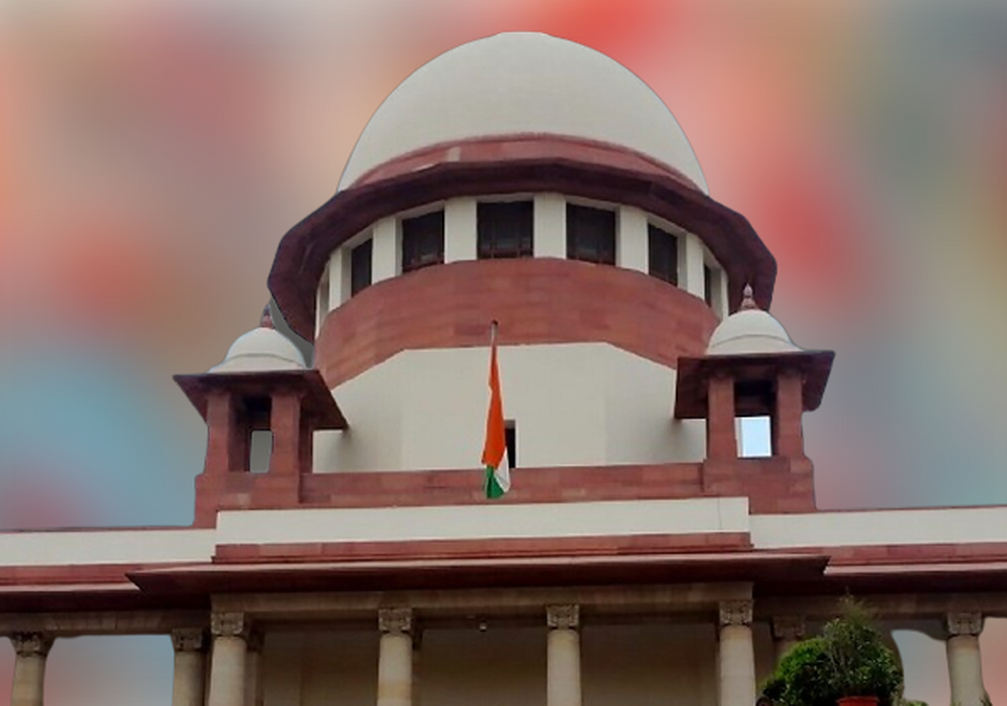Calcutta HC Judge recuses from hearing Mamata Banerjee’s Nandigram plea, imposes Rs 5 Lakh fine

Read Order: MAMATA BANERJEE v. SUVENDU ADHIKARI
LE Desk
Kolkata, July 7, 2021: The Calcutta High Court on Wednesday imposed a penalty of ₹5 lakh on West Bengal chief minister Mamata Banerjee for seeking recusal of Justice Kaushik Chanda from her Nandigram election petition over the judge’s alleged links with the Bharatiya Janata Party (BJP). While rejecting the application of the Trinamool Congress (TMC) chief, Justice Chanda, however, decided to step away from the case on his own personal discretion.
“Such calculative, psychological, and offensive attempt to seek recusal need to be firmly repulsed and a cost of ₹5 lakh is imposed upon Petitioner,” said the single-judge bench of Justice Chanda.
The High Court order said the fine of ₹5 lakh was imposed on Banerjee for painting the judiciary “in a bad light” and that the amount will be used for the families of lawyers affected by Covid-19.
Justice Kaushik Chanda said he was unable to convince himself that there was a “conflict of interest”. However, he still recused himself from the case so that “trouble-mongers” don’t get an opportunity to keep the controversy alive.
“It will be contrary to the interests of justice if such unwarranted problem continues along with trial,” said Justice Chanda while stepping away from the case.
Chanda had on June 24 observed that he was put on a “media trial” for his association with the BJP prior to judgeship, as he reserved the order on Banerjee’s plea seeking his recusal.
Senior advocate Abhishek Manu Singhvi, who appeared for Banerjee, on June 24 said there was overwhelming material to show that the judge had been “an active member of BJP” and held a “deeply personal, professional and ideological association” with the party. Singhvi took Chanda through various news reports and photographs mentioning him as a counsel for BJP in political cases relating to permission for Union minister Amit Shah’s rally, and the conduct of panchayat polls in 2014.
Justice Chanda expressed his displeasure that Singhvi did not cite the “likelihood of bias” when the matter first came up before his court on June 18.
In his written order, Justice Chanda on Wednesday said he was unable to persuade himself to agree to the proposition as advanced by Singhvi that there is a conflict of interest in the matter since “I have a long, close, personal, professional, pecuniary and ideological relationship” with a political party.
He added that Singhvi’s argument takes too sombre a view of the integrity of a judge. “When a litigant raises the question of bias against a Judge, who has taken the oath to discharge his duties without any fear or favour, the test has to be a real likelihood of bias or real danger of bias. The appearance of impartiality, in such a case, should not be viewed from the perspective of a common man.”
Justice Chanda said if a lawyer appears in several cases for a political party, his association with the legal cell of the party or with its leaders is natural. “In this country, it is almost impossible not to get a person who may not have said to have some political views. Anyone interested in politics may be said to ‘have an interest.’ Like any other citizen of the country, a Judge also exercises his voting rights in favour of a political party, but he lays aside his individual predilection while deciding a case.”
He added that a lawyer’s mind is trained not to identify himself with his client and at the same time be loyal to his duty towards his client. “When a lawyer moves from Bar to Bench, he carries with him the same sense of detachment already in-built in him. Ironically, two leading counsel engaged in the case have well known political identities adverse to the petitioner’s party. It is preposterous to suggest that a Judge having a past association with a political party as a lawyer should not receive a case involving the said political party or any of its members.”
Justice Chanda underlined that the past association of a judge with a political party by itself cannot form apprehension of bias.
Justice Chanda was designated as a senior advocate in June 2014. He served as an additional solicitor general of India from April 2015 to September 2019. Chanda was elevated to the high court as an additional judge in October 2019.
Earlier, West Bengal chief minister Mamata Banerjee had sent a letter to the Acting chief justice of the Calcutta high court, mentioning her objection to Justice Chanda’s appointment as a permanent judge over “likelihood of bias”, citing his associations with the BJP during his days as a lawyer.
Sign up for our weekly newsletter to stay up to date on our product, events featured blog, special offer and all of the exciting things that take place here at Legitquest.




Add a Comment